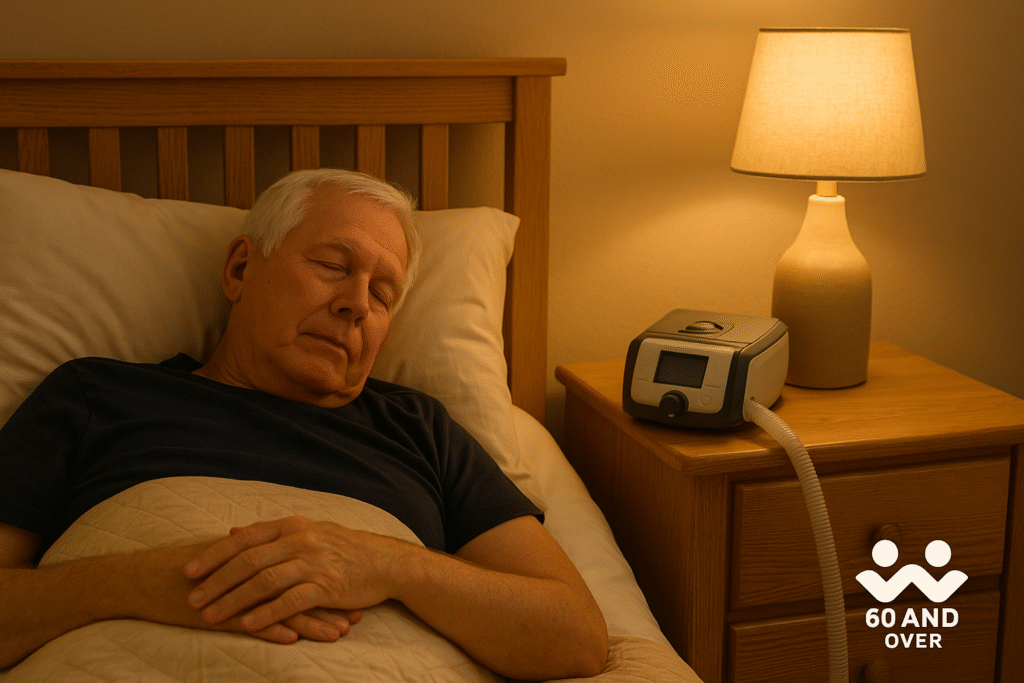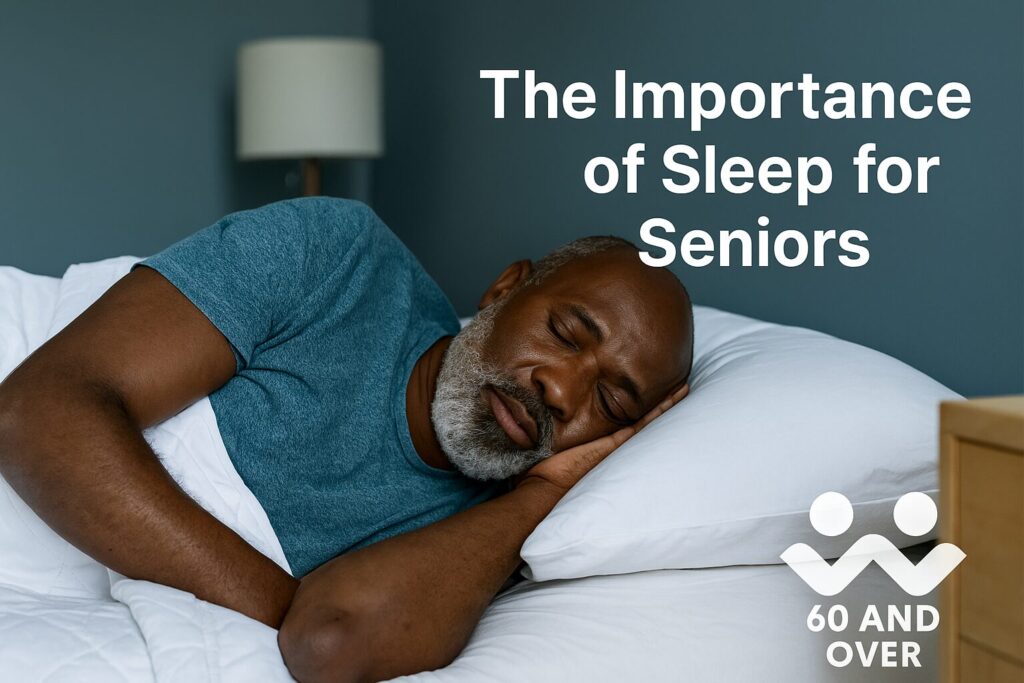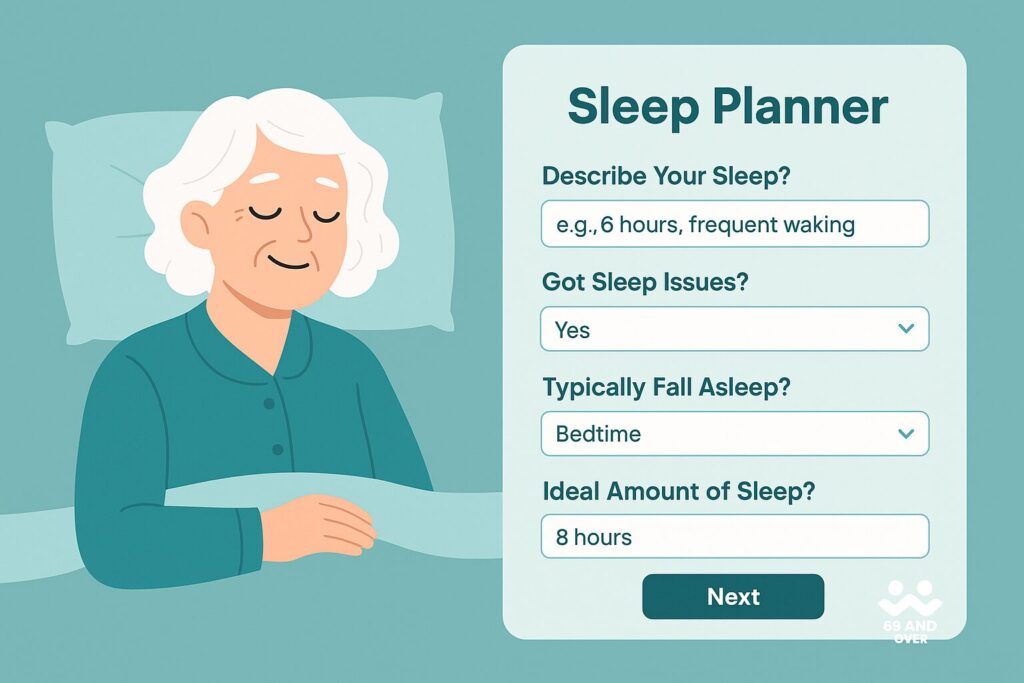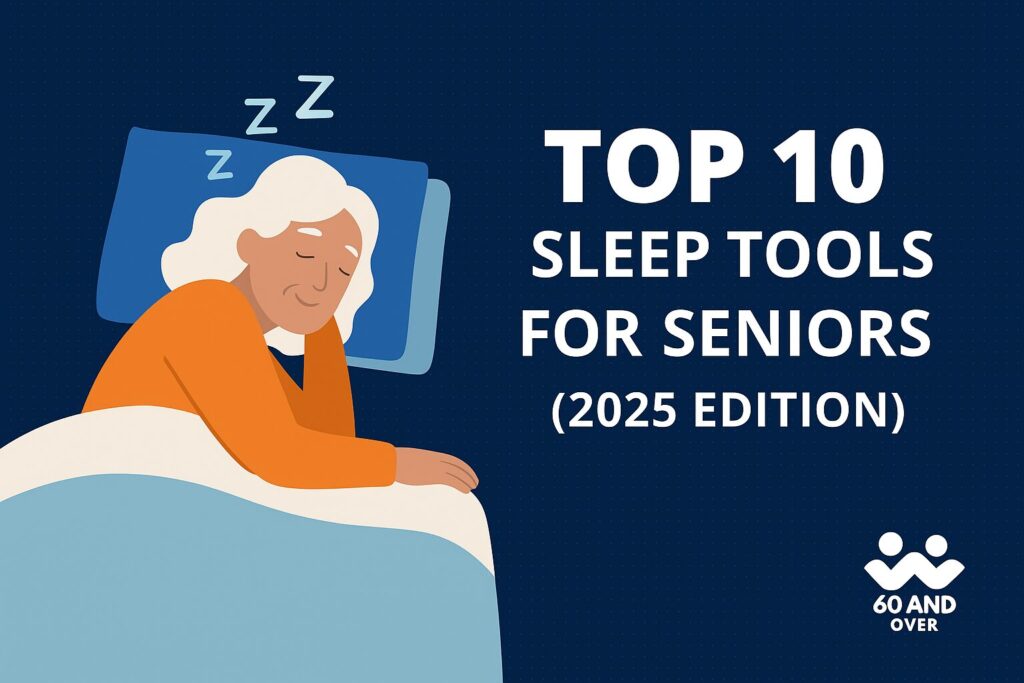Many older adults think snoring is just an inconvenience — but for some, it’s a sign of something more serious. Sleep apnea is one of the most common sleep disorders affecting older adults, and if left untreated, it can lead to heart problems, memory issues, and dangerous daytime fatigue.
If you or someone you care for wakes up feeling tired despite a full night’s sleep, this guide will help you understand what’s happening and how to get it under control.
What Is Sleep Apnea?
Sleep apnea is a condition where breathing repeatedly stops and starts during sleep. These pauses in breathing can last 10–30 seconds and occur dozens of times an hour. The brain briefly wakes the body to resume breathing, often without full awareness — which disrupts deep, restorative sleep.
The two main types are:
- Obstructive Sleep Apnea (OSA): Caused by a blocked airway, often from relaxed throat muscles.
- Central Sleep Apnea (CSA): Caused by the brain not sending proper signals to control breathing.
Many seniors experience a mix of both types, known as complex sleep apnea.
Why Sleep Apnea Becomes More Common Later in Life?
With advancing years, muscle tone naturally decreases — including in the throat and tongue — making airway collapse more likely. Weight gain, medications, and certain medical conditions also raise the risk.
Common contributing factors for seniors include:
- Reduced muscle elasticity in the airway
- Chronic nasal congestion or sinus problems
- Obesity or neck circumference increase
- Heart disease or diabetes
- Sedatives and sleep medications that relax airway muscles
It’s also worth noting that postmenopausal women and older men are especially prone to developing sleep apnea due to hormonal and structural changes.
Recognizing the Symptoms
Because sleep apnea happens during sleep, many seniors don’t realize they have it until a partner or caregiver notices. Common warning signs include:
- Loud, persistent snoring
- Gasping, choking, or pauses in breathing while sleeping
- Morning headaches or dry mouth
- Daytime sleepiness or fatigue despite “sleeping all night”
- Irritability, mood changes, or trouble concentrating
- Waking up frequently to urinate (nocturia)
Untreated sleep apnea can contribute to high blood pressure, irregular heartbeat, stroke, and cognitive decline, making early detection crucial.
How Sleep Apnea Is Diagnosed
Doctors may start with a physical exam and a detailed sleep history. The gold standard for diagnosis is a sleep study — either in a clinic (polysomnography) or at home using portable equipment.
These tests monitor breathing patterns, oxygen levels, heart rate, and brain activity during sleep. The results determine the Apnea-Hypopnea Index (AHI), which measures the number of breathing interruptions per hour. The Sleep Foundation notes that timely diagnosis and the right type of support can restore deeper rest, steadier energy, and better overall health.
Treatment Options for Seniors
The goal of treatment is to keep airways open and maintain healthy oxygen levels throughout the night. Options range from simple lifestyle adjustments to specialized medical devices.
1. CPAP Therapy (Continuous Positive Airway Pressure)
The most common treatment. A CPAP machine gently delivers air through a mask, preventing the airway from collapsing. Today’s models are quieter, more comfortable, and even portable for travel.
2. Oral Appliance Therapy
Custom-fitted mouthpieces can reposition the lower jaw or tongue to keep airways open. These work best for mild to moderate sleep apnea and are less intrusive than CPAP.
3. Weight Management and Exercise
Losing even 5–10 pounds can significantly reduce symptoms. Light aerobic exercise and yoga help improve oxygen intake and muscle tone in the airway.
4. Positional Therapy
Sleeping on your side rather than your back can reduce airway blockage for some people. Special pillows or wearable devices can help maintain the right position.
5. Surgical Options
In severe or resistant cases, procedures like uvulopalatopharyngoplasty (UPPP) or upper airway stimulation may be considered. The Mayo Clinic notes that these surgical options are generally viewed as last-resort treatments and should be evaluated carefully for older adults.
Gentle, consistent care is key to long-term results. For a complete look at bedtime habits, restful routines, and safe supplement support, visit our Best Sleep for Seniors guide.
Lifestyle Tips for Managing Sleep Apnea Naturally
- Avoid alcohol and sedatives before bedtime
- Keep a healthy weight and active daily routine
- Use nasal sprays or humidifiers if you experience congestion
- Maintain a consistent bedtime and sleep environment
- Quit smoking — it inflames and narrows airways
Small adjustments like elevating the head of your bed or keeping the room comfortably cool can also help reduce nighttime breathing interruptions.
The Hidden Impact of Untreated Sleep Apnea
Sleep apnea doesn’t just affect sleep — it affects overall brain and heart health. Interrupted oxygen flow strains the cardiovascular system and increases the risk of heart failure or stroke. For seniors, this can also worsen memory issues and raise the likelihood of falls due to daytime drowsiness.
Early diagnosis and treatment not only improve sleep but can extend life expectancy and enhance energy, focus, and mood.
When to Talk to a Doctor?
If you suspect sleep apnea, don’t delay — bring it up at your next appointment. Mention symptoms like snoring, fatigue, or morning headaches. A simple screening questionnaire and at-home test can provide answers quickly.
With the right treatment, most older adults report noticeable improvements in energy and alertness within just a few weeks. For additional guidance on nightly comfort and better rest, visit our Best Sleep for Seniors page — it’s filled with gentle strategies for improving sleep quality at any age.
To explore more articles on restful living, healthy routines, and sleep wellness, check out our Sleep Category page for in-depth guides created especially for adults over 60.
Final Thoughts
Sleep apnea can be intimidating, but it’s both common and treatable. Whether through CPAP therapy, oral devices, or lifestyle changes, there’s help available for every situation. The key is to recognize the signs early and work with your doctor to create a plan that fits your needs.
Better sleep means better days — and it’s never too late to start breathing easier.
Frequently Asked Questions About Sleep Apnea in Seniors
1. What causes sleep apnea in older adults?
Sleep apnea often develops when throat muscles relax too much during sleep. Age-related muscle changes, certain medications, or health conditions such as high blood pressure or diabetes can increase the risk.
2. How can I tell if I might have sleep apnea?
Loud snoring, gasping for air, or frequent waking during the night are early warning signs. Morning headaches, fatigue, or daytime sleepiness are also common indicators.
3. Is sleep apnea dangerous?
Yes. If untreated, sleep apnea can raise the risk of heart problems, stroke, memory issues, and mood changes. Getting evaluated early helps prevent complications.
4. How is sleep apnea diagnosed?
A doctor may recommend a sleep study at a clinic or an at-home test that tracks breathing, oxygen levels, and sleep patterns. These results show how often breathing stops or slows.
5. What treatments help older adults manage sleep apnea?
CPAP therapy, oral devices, gentle weight management, and positional therapy often help. In some cases, a doctor may consider surgical options or other personalized approaches.
Related Reading
Looking to improve rest and sleep comfort? These articles from 60AndOver.net offer practical insights and simple ways to sleep more soundly:
Gentle strategies, bedtime routines, and simple adjustments to help older adults wake feeling more rested and clear-headed.
🔹 Best Natural Sleep Aid for Elderly: Safe, Gentle, and Truly Effective
Explore natural, non-habit-forming options that support calm, deep sleep without strong medications.
Find all of our articles on sleep health, nighttime comfort, and energy restoration — all written with adults over 60 in mind.





